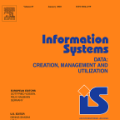The study of the fundamental limits of information systems is a central theme in information theory. Both the traditional analytical approach and the recently proposed computational approach have significant limitations, where the former is mainly due to its reliance on human ingenuity, and the latter due to its exponential memory and computational complexity. In this work, we propose a new computational approach to tackle the problem with much lower memory and computational requirements, which can naturally utilize certain intuitions, but also can maintain the strong computational advantage of the existing computational approach. A reformulation of the underlying optimization problem is first proposed, which converts the large linear program to a maximin problem. This leads to an iterative solving procedure, which uses the LP dual to carry over learned evidence between iterations. The key in the reformulated problem is the selection of good information inequalities, with which a relaxed LP can be formed. A particularly powerful intuition is a potentially optimal code construction, and we provide a method that directly utilizes it in the new algorithm. As an application, we derive a tighter outer bound for the storage-repair tradeoff for the $(6,5,5)$ regenerating code problem, which involves at least 30 random variables and is impossible to compute with the previously known computational approach.
翻译:对信息系统基本界限的研究是信息理论的一个中心主题。传统分析方法和最近提议的计算方法都具有重大的局限性,前者主要由于依赖人类的智慧,后者主要由于其指数内存和计算的复杂性而具有重大的局限性。在这项工作中,我们提出一种新的计算方法,以较低的内存和计算要求来解决问题,这种要求可以自然地利用某些直觉,但也能够保持现有计算方法的强大的计算优势。首先提议重新研究潜在的优化问题,将大型线性程序转换成一个最大问题。这导致迭代解决程序,使用LP双重程序在迭代之间传递学到的证据。重订问题的关键是选择良好的信息不平等,从而形成宽松的LP。特别强大的直觉是一种潜在的最佳代码构造,我们提供了一种在新的算法中直接利用它的方法。作为一种应用,我们为储存-修复交易找到一个更紧密的外框,用于$(6,5,5,5,5美元)再生代码问题。这会导致迭接的迭代程序,这需要至少30个已知的随机变数和无法进行计算。




